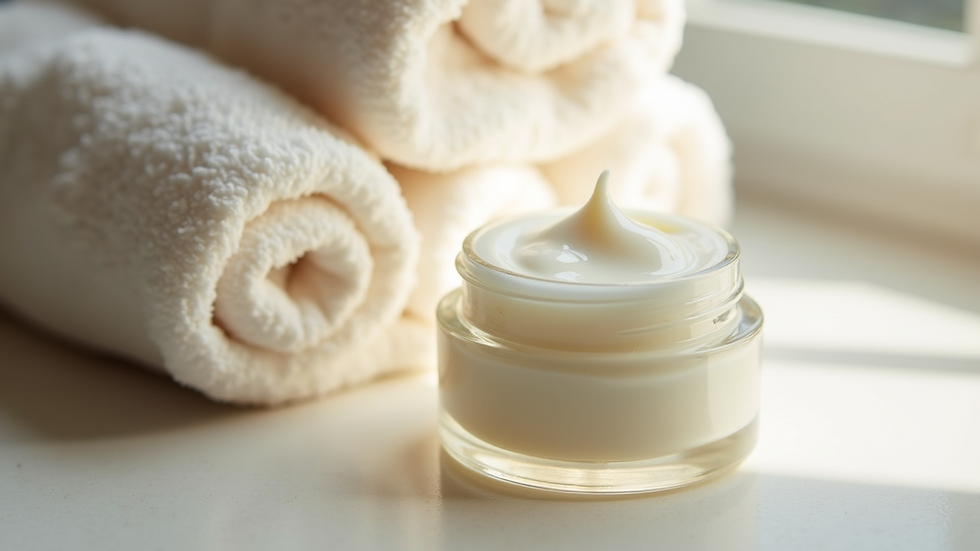Understanding the Challenges of Living with Eczema
- Sep 22, 2025
- 3 min read
Living with eczema can be a daily struggle that affects many aspects of life. This skin condition, characterized by red, itchy, and inflamed patches, can cause discomfort and emotional distress. Understanding the challenges faced by those with eczema is essential to provide empathy, support, and practical solutions. This article explores the common difficulties, effective management strategies, and ways to find relief.
The Eczema Challenges: Physical and Emotional Impact
Eczema presents a variety of physical symptoms that can be painful and persistent. The skin often becomes dry, cracked, and prone to infections. Scratching, although instinctive, can worsen the condition and lead to bleeding or scarring. These physical challenges can interfere with daily activities such as sleeping, working, or exercising.
Emotionally, eczema can cause frustration, embarrassment, and anxiety. Visible flare-ups may affect self-esteem and social interactions. Many people with eczema report feeling isolated or misunderstood because others may not recognize the severity of their condition.
Some specific eczema challenges include:
Constant itching and discomfort that disrupts concentration and rest.
Sensitivity to environmental triggers such as weather changes, allergens, or irritants.
Difficulty finding suitable skincare products that do not aggravate the skin.
Managing flare-ups that can appear suddenly and last for days or weeks.
Understanding these challenges helps in developing empathy and encourages supportive environments for those affected.

Common Triggers and How They Affect Eczema
Identifying and avoiding triggers is a crucial part of managing eczema. Triggers vary from person to person but often include:
Environmental factors: Cold or dry weather, pollution, and exposure to harsh chemicals.
Allergens: Dust mites, pet dander, pollen, and certain foods.
Stress: Emotional stress can worsen symptoms or trigger flare-ups.
Clothing: Rough fabrics like wool or synthetic materials can irritate sensitive skin.
Personal care products: Soaps, detergents, and fragrances may cause reactions.
Recognising these triggers requires careful observation and sometimes professional advice. Keeping a diary of flare-ups and potential causes can help identify patterns. Once triggers are known, practical steps can be taken to reduce exposure, such as:
Using a humidifier during dry seasons.
Choosing fragrance-free and gentle skincare products.
Wearing soft, breathable clothing.
Managing stress through relaxation techniques or counselling.
These measures can significantly reduce the frequency and severity of eczema flare-ups.

What Helps Eczema the Most?
Managing eczema effectively often requires a combination of treatments and lifestyle adjustments. Here are some of the most helpful approaches:
Moisturising regularly: Keeping the skin hydrated is essential. Use thick, fragrance-free creams or ointments multiple times a day, especially after bathing.
Medications: Topical corticosteroids or calcineurin inhibitors prescribed by a healthcare professional can reduce inflammation during flare-ups.
Bathing habits: Short, lukewarm baths or showers help avoid drying out the skin. Adding colloidal oatmeal or bath oils can soothe irritation.
Avoiding irritants: Use mild, soap-free cleansers and wear gloves when handling cleaning products.
Diet and hydration: Drinking plenty of water and maintaining a balanced diet may support skin health.
Stress management: Techniques such as mindfulness, yoga, or counselling can help reduce emotional triggers.
It is important to consult a dermatologist for personalised treatment plans. Combining these strategies can improve quality of life and reduce eczema symptoms.

Practical Tips for Daily Life with Eczema
Living with eczema means adapting daily routines to protect the skin and reduce discomfort. Here are some practical tips:
Wear breathable, loose-fitting clothes made from natural fibres like cotton.
Keep nails short to minimise damage from scratching.
Use a humidifier in dry environments to maintain skin moisture.
Choose gentle laundry detergents without dyes or fragrances.
Avoid hot showers and opt for lukewarm water instead.
Apply moisturiser immediately after bathing to lock in moisture.
Carry a small tube of moisturiser for on-the-go relief.
Stay hydrated by drinking water throughout the day.
Manage stress through regular exercise, meditation, or hobbies.
Seek support from eczema communities or healthcare providers.
These small changes can make a significant difference in managing eczema symptoms and improving comfort.
Finding Support and Resources
Living with eczema can feel overwhelming, but help is available. Connecting with others who understand the condition can provide emotional relief and practical advice. Many organisations offer resources, support groups, and educational materials.
For those seeking additional help, eczema support networks provide valuable information and community connections. Healthcare professionals such as dermatologists, allergists, and psychologists can also offer tailored care.
Remember, managing eczema is a journey that involves patience and persistence. With the right knowledge and support, it is possible to live well despite the challenges.
By understanding the eczema challenges and adopting effective strategies, individuals can take control of their condition and improve their quality of life. Awareness, empathy, and practical care are key to navigating the complexities of eczema every day.



Comments